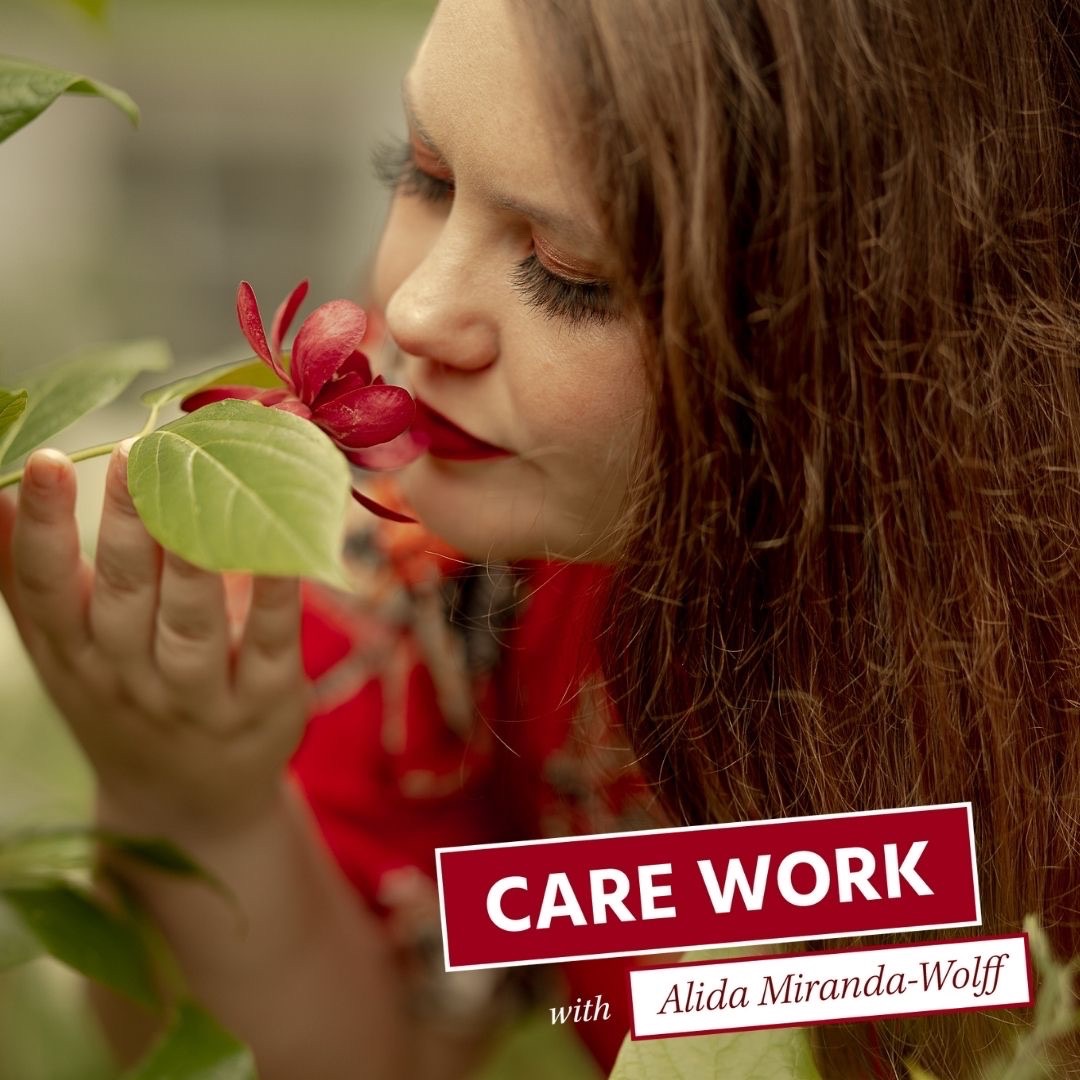Balancing Self-Care and Community Care: A Reflection on Two Years of Podcasting – Episode #35
How do you recognize when staying true to your values means stepping back? Over the past two years, the Care ...
Who is in the business of providing tender love and care? What does it mean to get paid to nurture strangers? And, what kind of support do these people need?
In Care Work, author and diversity, equity, inclusion, and belonging practitioner, Alida Miranda-Wolff, seeks answers to all of these questions with care workers of all kinds through discussions of their lived experiences. Learn how to create a culture of care in your communities and have your own care needs met through episodes that balance real-life stories with actionable takeaways.

How do you recognize when staying true to your values means stepping back? Over the past two years, the Care ...
How can creators innovate to instill more humanness into their designs? Despite being at the root of almost everything we ...
How connected are you to the food you purchase and consume? Over the past century, society’s focus on the food ...
How does a culture of care transform the workplace experience? The call for safe, caring workplaces is becoming increasingly loud, ...
As a manager, how do you balance offering care and corporate responsibility? Many managers may not apply the label of ...
In The First-Time Manager: DEI, Alida acknowledges that being a manager is often challenging, thankless, and confusing. There is a ...
How do you define love while embracing the worth of each other? In this episode, Alida is joined by Dr. ...
How do you define and process grief? Over the next three episodes, Care Work is exploring grief—the collection of emotions ...
How do we dismantle the disability stigma? This latest arc on the Care Work podcast explores the concept of disability ...
From elementary school classrooms to adult care homes, so many of our care structures for disabled people are designed without ...
How can we design inclusive spaces—physically and virtually—that support neurodiversity?
The Disability Justice movement is increasing the recognition and adoption of ...
How can we show everyone the benefits of inclusive educational spaces?
Tim Villegas is the Director of Communications at the Maryland ...